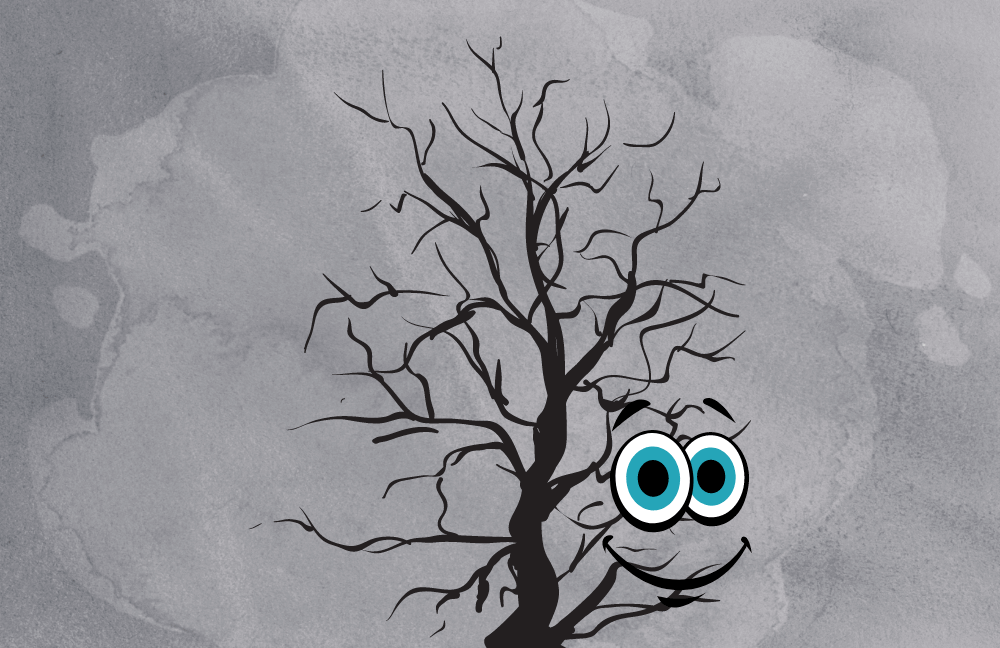Depression in Children
What Is Childhood Depression?
Feeling hopeless and sad every once in a while, is a part of every child’s life. However, some children start to feel low or become uninterested in things that they used to enjoy earlier on. They feel they’re not good enough, or that they have wronged and deserve to be punished. They also feel hopeless, that they cannot change how they feel. And to top it all they are embarrassed to speak to anyone about it. When children persistently feel such sadness and hopelessness, they may be diagnosed with depression.
Many parents fail to see childhood depression as a treatable medical problem and hence refrain from seeking help. But its damaging psychological effect can continue into adolescence and adulthood if untreated. Childhood depression deserves special attention, considering the serious and lasting consequences that the disease has on their overall development.
Do Children Actually Feel Depressed?
Childhood Depression is for real. And the tricky part is that it presents very differently from adult depressive disorder. That is why many children who suffer from depression don’t end up getting treatment. They aren’t aware that this is a medical psychological problem, and more often than not, parents think that their symptoms simulate a tantrum. Unknowingly they could rebuke the child too.
Like adults, children have needs, preferences, desires and dreams they want to realize. These might seem trivial to grown-ups and could be overlooked. But the impact they leave on children when unfulfilled can be quite deep. Children don’t know how to filter emotions. That is why a tiny rejection seems like the end of the world to them, even though it truly isn’t.
For a child’s narrow perspective, this is their only reality. It’s not surprising that children get sad from time to time. In fact, children face as much, if not more rejection than adults every day – in the classroom, playground, at tennis, dance, and at home with parents and siblings too. As adults we need to be cognizant of our children’s emotions and the psychological turmoil they might endure.
Is Childhood Depression a Serious Problem?
One in six people in the world are aged 10-19 years today; that’s a lot of children we have to watch out for. We don’t realize it but half of all mental health conditions start by 14 years of age but most are undetected and untreated way into adulthood. Depression is one of the leading causes of illness and disability among teenagers, and suicide is the third leading cause of death in 15-19-year-olds. Not addressing child and adolescent depression impairs both physical and mental health, and limits their opportunity to lead fulfilling lives as adults. Childhood depression is a very serious problem.
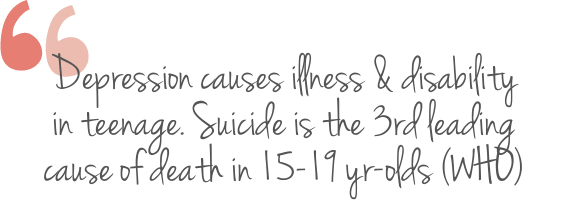
What Causes Depression in Children?
There is no single reason to explain why children develop a depressive disorder and cannot spring back from that occasional low mood. Sadness, rejection, failure; are all a normal part of growing up. They make us sturdy, and help us deal with frustrations in life. But, when the negative feeling is excessive, pervasive and unrelenting, it is a problem. We think it’s the poor exam result, or not being invited to a friend’s party, or a nasty comment on Instagram that’s causing our children to feel sad. But reality is deeper rooted.
Evidence and research over the years explain a combination of genetic, biological, psychological and environmental variables in childhood depression. High risk factors include a history of depression in the family, significant life events (like death or change in school or residence), acute or chronic physical illness (like epilepsy or diabetes), or some specific medicines that interfere with the brain activity.
Also, every child’s coping style, what they have endured in their life and how they evolved; all affect the way they perceive rejection and failure – as positive or negative. Negative events will always arouse some sadness in all of us. But some children are less prepared psychologically, to fight stressors. So, they succumb to depression.
Depression Symptoms in Children
Childhood depression is “an emotion characterized by feelings of sadness, guilt, low self-esteem and physical effects on the body with changes in behavior”. Not all children with depression present with the same symptoms. Yet, typically if your child has some or many of the following, he or she might be suffering from a depression disorder and you should seek professional help.
Depression: Emotional
- Sadness, gloom, anguish, distress
- Endless self -doubt, self-deprecation
- Feeling guilty, embarrassed easily
- Insecurity, low confidence, timidity
- Helplessness, hopelessness, shame
- Negative about any or all outcomes
- Losing confidence in everything
Depression: Physical
- Feeling tired for no real reason
- Becoming sick and unwell often
- Not eating well, losing weight
- Sleeping too little or too much
- Extremely slow body movements
- Unexplained physical agitation
- Less attention to personal hygiene
Depression: Cognitive
- Difficulty focusing on anything
- Confusion and weak memory
- Obsessing over every downfall
- Believing only in the negative
- Saying the mind is going blank
- Several thoughts about ‘the end’
- Baseless negative assumptions
Depression: Behavioral
- Restlessness, crying, clinginess
- Increase or decrease in energy
- Social withdrawal, staying alone
- Refusal to meet close friends
- Slacking at home and school
- Self-destructive tendencies
- Risky or uninhibited behavior
Treatment of Depression in Children
A worrisome hurdle in managing childhood depression, is convincing parents and children both, that this needs intervention. The stigma and taboo around psychological illness in children plays quite a negative role. That is why an empathic, non-judgmental and respectful cognitive and behavioral approach is essential. Parents and caregivers can make lot of difference themselves. For starters, by talking to children about their mood and letting them know that it’s alright to feel this way. This eases their burden and offers the supportive hand they need while they sense they are drowning in their woes.
Speaking to another close family member who they trust, can also help if they don’t want to speak to parents. Most importantly, as a parent, do not become sad yourself when you learn about how your child is feeling. Children need a steady pillar to lean on. Be that. When they’re ready to see a supportive and empathic professional, the job becomes easier. Here are some ways in which therapy helps children cope with depression and prevents it from recurring.
Therapy Goals
- Establish the child’ trust and faith
- Help them express feelings openly
- Reassure that it’s alright to feel this
- Identify external sadness triggers
- Gauge the severity they perceive
- Identify negative, irrational beliefs
- Help them feel safe and comforted
Therapy Outcomes
- Rational and more realistic thinking
- Lessened emotional hyperreactivity
- Self-confidence and self-reliance
- Assertiveness and self-expression
- Improved communication skills
- Lessened catastrophic thinking
- Normalcy in their routine and life
How Dr Shefali Helps Children Beat Depression
Mood management in children requires us to understand how they feel, and to respect their emotions, not belittle them. With that in mind, we first have a detailed discussion with parents and then plan the session with the child. In younger kids, parents make the best therapists hence parent education and coaching become the principal focus. Following that we chalk out a treatment plan that embraces parent and child goals, preferences and pace of work. In older children and adolescents, a cognitive and behavioral approach works best.
Changing emotional reactivity and behavior patterns is not easy. Parents too might find it challenging to modify their automated behaviors with their children. With ongoing communication, step by step support, cognitive challenge techniques, mindfulness training and continuous daily guidance and self-monitoring, the speed of emotional healing increases manifold. Parent education, behavior therapy, cognitive therapy and other specialized child psychotherapy interventions help children and parents get empowered to deal with the moodiness better.
Dr Shefali Batra spoke to the Free Press Journal along with other experts explaining the importance of optimal parenting strategies for helping children. She is a Feature Writer in India’s Teen Zine called Teenager Today.
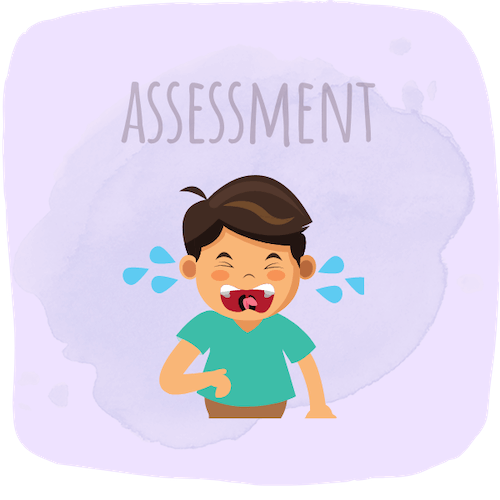
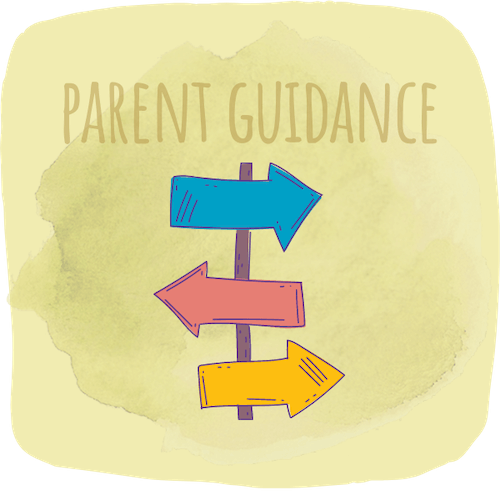
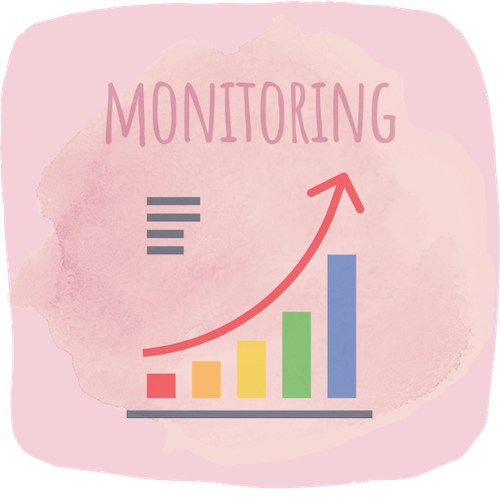
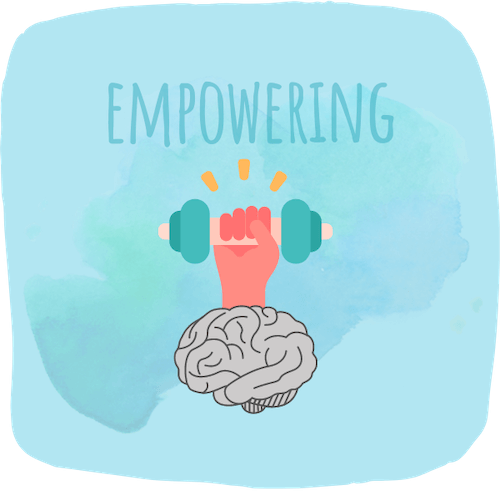
References
- Alsaad, A. J., Azhar, Y., Al Nasser, Y., (2020). Depression in Children. Treasure Island (FL): StatPearls Publishing.
- Lima, N. N., do Nascimento, V. B., et al, (2013). Childhood depression: a systematic review. Neuropsychiatric disease and treatment, 9, 1417–1425.
- Kessler, R. C., Angermeyer, M., Anthony, J. C., et al. (2007). Lifetime prevalence and age-of-onset distributions of mental disorders in the World Health Organization’s World Mental Health Survey Initiative. World Psychiatry; 6: 168–76.
Latest Posts

7 Reasons Why You Should Seek Therapy
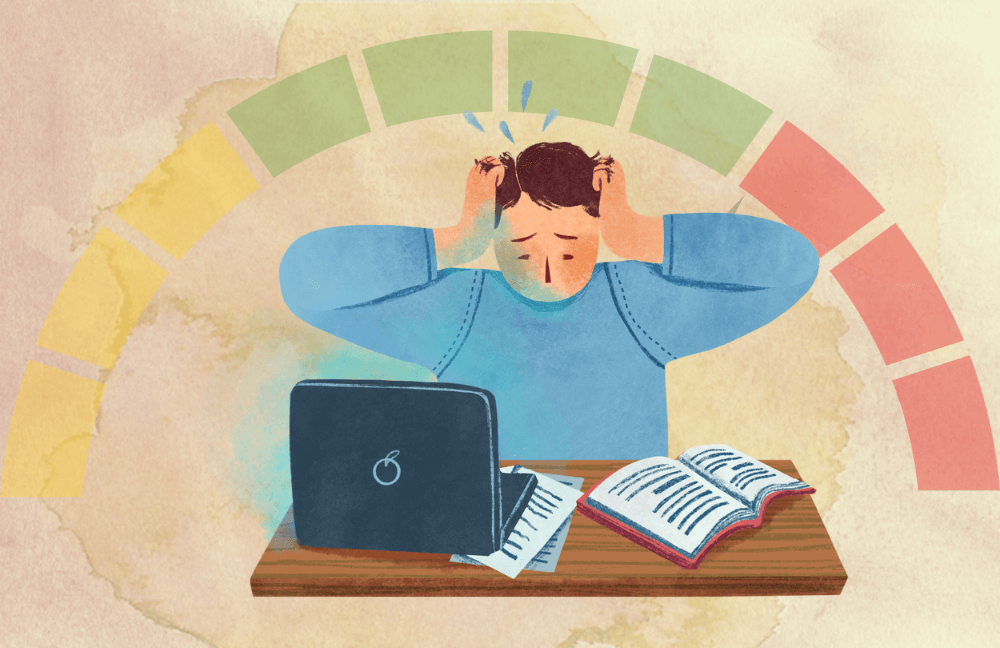
7 Questions About Workplace Stress Answered
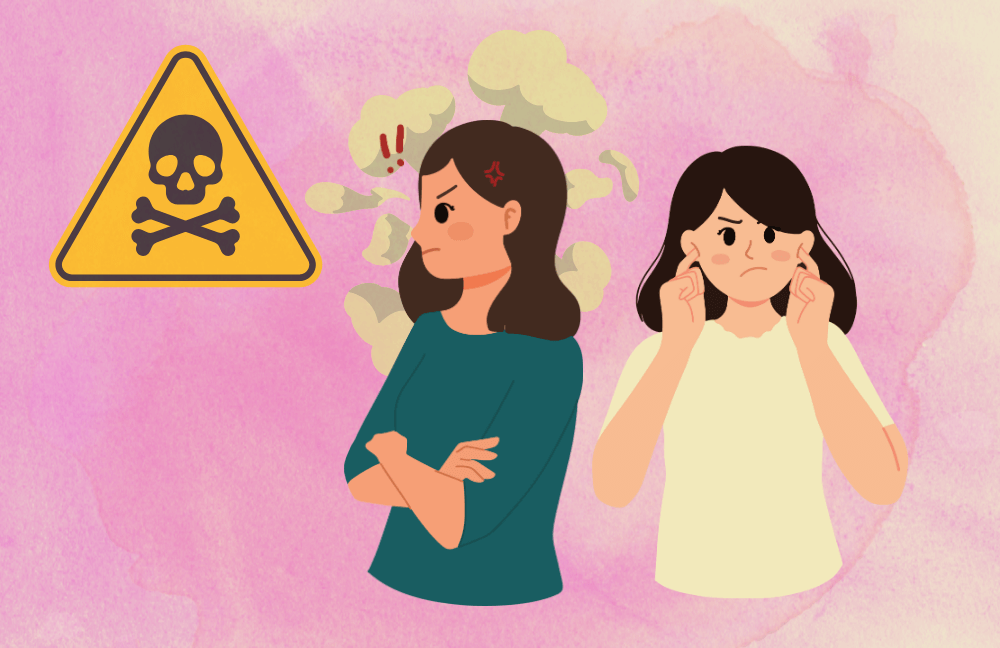
5 Ways To Deal With A Toxic Coworker
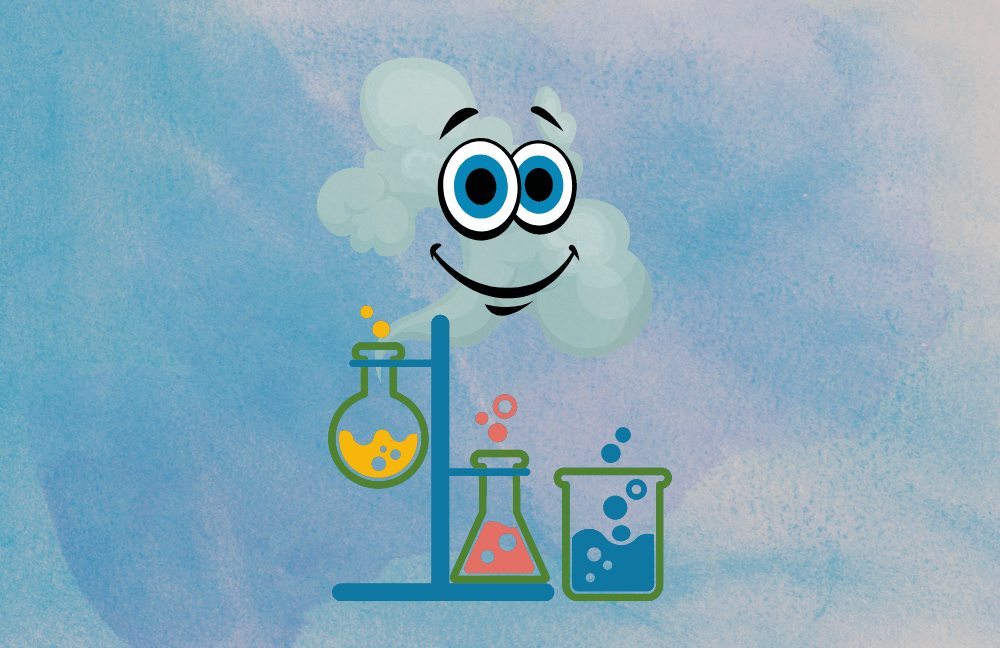
Science of Happiness: 1000s Of Years Of Research
